Superstar R&B Artist Official Angello
Allister Amada Spoken Word Contest Winner
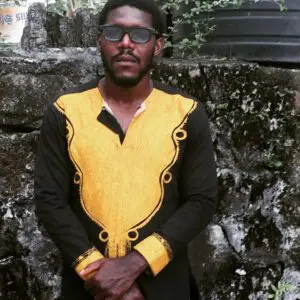
Winner
Lilian Langaigne contest winner
Jenson Mitchell aka Highroof Spirit Lead Spoken Word Piece

Ellington Nathan Purcell aka “Ello”
A must watch Spoken Word

Out of Africa
Historical records show that Islam and Christianity played an important role in the enslavement of Africans. The Arab-controlled Trans-Saharan slave trade helped to institutionalize slave trading on the continent. And during the ‘age of expedition’, European Christians witnessed caravans loaded with Africans en-route to the Middle East. Others arriving much later in West Africa observed slavery in African societies, leading them to assume that African enslavement was intrinsic to the continent.
For many of these early European explorers, the Bible was not only regarded as infallible, it was also their primary reference tool and those looking for answers to explain differences in ethnicity, culture, and slavery, found them in Genesis 9: 24-27, which appeared to suggest that it was all a result of ‘sin’.
In the Genesis passage, Africans were said to be the descendants of Ham, the son of Noah, who was cursed by his father after looking at his naked form. Moreover, in Genesis 10, the ‘Table of Nations’ describes the origins of the different ‘races’ and reveals that one of the descendants of Ham is ‘Cush’ – Cush and the ‘Cushites’ were people associated with the Nile region of North Africa.
In time, the connection Europeans made between sin, slavery, skin color and beliefs would condemn Africans. In the Bible, physical or spiritual slavery is often a consequence of sinful actions, while darkness is associated with evil. Moreover, the Africans were subsequently considered ‘heathens’ bereft of Christianity, although scholars and most Europeans knew all along that Christianity reached Africa as early as the early 2nd century AD and that the Christian communities in North Africa especially were among the first in the world. However, Europeans doubtlessly refused to acknowledge the relevance of African Christianity as it appeared irreconcilable with the continent’s cultural surroundings based on their European cultural perception.
Religion as justification
The emergence of colonies in the Caribbean and the need to find laborers saw Europeans turn their attention to Africa with some arguing that the Transatlantic Slave Trade would enable Africans, especially the ‘Mohammedans’, to come into contact with Christianity and ‘civilization’ in the Americas, albeit as slaves. It was even argued that the favorable trade winds from Africa to the Americas were evidence of this providential design. Similar to the Pilgrims and the native American narrative in North America.
Religion was also a driving force during slavery in the Caribbean. Once they arrived at their new locales, the enslaved Africans were subjected to various processes to make them more compliant, and Christianity formed part of this. Ironically, although the assertion of evangelization was one of the justifications for enslaving Africans, very little missionary work actually took place during the early years. In short, religion got in the way of a moneymaking venture by taking Africans away from their work. It also taught them potentially subversive ideas and made it hard to justify the cruel mistreatment of fellow Christians.
However, some clergy tried to push the idea that it was possible to be a ‘good slave and Christian’ and pointed to St Paul’s epistles, which called for slaves to ‘obey their masters’, and St Peter’s letters (1 Peter 2: 18-25), which appeared to suggest that it was wholly commendable for Christian slaves to suffer at the hands of cruel masters.
Christian Abolitionists
While some clergymen were using Christian scriptures to propagate slavery, others were scouring the Bible to end it. Although evangelicals tend to receive most of the credit for this, the origins of Christian abolitionism can be traced to the late 17th Century and the Religious Society of Friends or Quakers.
Since their establishment in the mid17th century, Quakers had faced persecution for their beliefs which stated that everyone was “equal in the sight of God” and capable of receiving the “light of God’s spirit and wisdom”, including Africans. Several of their founders, including George Fox and Benjamin Lay, encouraged fellow congregants to stop owning slaves, and by 1696, Quakers in Pennsylvania officially declared their opposition to the importation of enslaved Africans into North America.
Quakers in Philadelphia and London debated slavery at their yearly meetings in the 1750s, and fellow Quaker Anthony Benezet’s Some Historical Account of Guinea (1772) became required reading for abolitionists on both sides of the Atlantic. For instance, it informed John Wesley’s Thoughts Upon Slavery (1774) which in turn influenced many British Christian abolitionists and was said to have inspired the former slave trader turned clergyman, John Newton, to break his decades of silence about his involvement in the slave trade.
Many early Christian opponents of slavery came from congregations such as Congregationalists, Quakers, Presbyterians, ‘Methodists’ and Baptists, who were called ‘Nonconformists’ or ‘Dissenters’ because they disagreed with the beliefs and practices of the Church of England. These Christians were often marginalized because of this, but their counter-cultural stance enabled them to make connections with those who faced other forms of persecution.
Calls for Abolition Grow
The main thrust of Christian abolitionism emerged from the evangelical revival of the 18th century, which spawned dynamic Christians with clear-cut beliefs on morality and sin and approached the issue of slavery from this standpoint.
In his Thoughts upon Slavery, John Wesley questioned the morality of slavery and those who engaged in it, while William Wilberforce, the evangelical Anglican MP who worked to end the slave trade in Parliament, believed that he had been called by God to end the ‘immoral’ slave trade.
Many evangelicals were interested in the physical as well as the spiritual condition of enslaved Africans. Clergymen such as James Ramsay, who had worked in the Caribbean, were influential in pointing out that many Africans died without hearing the gospel.
However, practical evangelical abolition work began with the Anglican Granville Sharp in the mid1760s when he fought for the freedom of a young African, Jonathan Strong. Sharp rose to national prominence during the landmark Somerset Case of 1772, which determined the status of slavery in Britain. He would later join with the Quakers to establish the first recognized anti-slavery movement in Britain in 1787. By this time, other Anglicans such as Thomas Clarkson had entered the fray. Clarkson, who had written an award-wining essay on slavery in 1785, received what he considered to be divine instructions to work to end slavery.
Inconsistencies
It would be wrong to suggest that there were Christian ‘saints’ and ‘sinners’ in regards to slavery. It can be argued that both characteristics co-existed within denominations and individuals alike, demonstrating the idiosyncrasies and inconsistencies of all human beings. For instance, the Quakers have been described as the ‘good guys’, yet their links to slavery included the infamous David and Alexander of Barclays Bank fame, Francis Baring of Barings Bank and the Quaker merchant Robert King who was Olaudah Equiano’s last slave master. Most tellingly, even during the height of their anti-slavery activity, many Quaker meeting houses refused to accept Africans into their congregations.
This was also the situation with the other denominations. The Church of England, being the established church, had links to slavery through the United Society for the Propagation of the Gospel missionary organizations, which had plantations in Barbados; while the Bishop of Exeter was a personal slave owner. Moreover, Anglicans involved in slavery often poured their ill-gotten gain into Church coffers. And in cities such as Bristol, the church bells pealed when Wilberforce’s anti-slave trade Bills were defeated in Parliament.
However, not all Anglicans were complicit. Dr Beilby Porteus, the Bishop of London, was an evangelical abolitionist whose sermons regularly railed against slavery. Similarly, the Clapham Sect, a group of Anglicans based around Clapham, south London, carried out sterling work to end the slave trade. Likewise, the Countess of Huntingdon (herself a slave owner) became a sponsor of the poetry of the former enslaved African Phyllis Wheatley. Wheatley’s work, some of which addressed freedom and bondage, was published in the UK because publishers in Boston could not accept that a Black woman could write such exquisite verse.
Criticism
However, the Christian abolitionists have their detractors and some have argued that they never showed the same commitment to ending slavery as they did to ending the slave trade. Their attitude towards Africans appear condescending by today’s standards. Yet, for their time, they were considered enlightened for recognizing that Africans were made in the image of God and believing that Africa could trade with Europe in products and not human beings.
The enslaved and Christianity
Some would argue that Christianity turned Africans into a submissive slave as suggested earlier and which is evident among their freed descendants. A more accurate reading in my opinion suggests that Africans accepted and incorporated aspects of Christianity that were in keeping with their traditional belief systems. Others withstood centuries of slavery and missionary influence to practice traditional beliefs that thrived despite great attempts by the respective authorities to stamp them out.
Adherents to Islam also faced great restrictions on their ability to practice their religion openly. When Non-conformist missionaries stepped up attempts to evangelize Africans during the late 18th century, it was noted that the African Muslims still held on to their tendency to pray with their arms open, as opposed to the Christian way with hands clasped and bowed head.
The Africans who embraced Christianity identified closely with the Bible’s view of freedom, equality and justice and especially drew parallels between their own situation and the Hebrew people in the Book of Exodus. Indeed, such was the potency of this Old Testament story that many clergymen were instructed to avoid it in their Bible lessons. However, for the Africans it demonstrated that God was on the side of the oppressed and would send a Moses to free them. Their hymnals were filled with mourning and groaning as they await their deliverer. It was ironic that for Africans, the Americas (the USA in particular) represented the Biblical Egypt or Babylon – a place from which to escape – while for persecuted European Christians it was the Promised Land.
The Diaspora
It is no coincidence that in the Diaspora, ‘leaders’ in the Black community are invariably men and women of faith; a trait that is traceable to slavery. During this era, a religious leader was deemed to be called by God and given wisdom and power to lead and practically all the leaders of slave insurrections were men and women of faith (or were ‘protected’ by prayers or hexes) such as the Fedon Rebellion in Grenada, Nanny of the Maroons, Toussaint and Boukman in Haiti, Sam Sharpe in Jamaica, Quamina in Guyana, etc.
Today we find that many black preachers still preach the message of submission which is derived and interpreted through the lens of slavery. Messages are being taught and passages in the scripture are still being interpreted to show that one must be submissive as to their husbands, masters, “God’s Anointed” etc. We are not being taught to be entrepreneurs, to own our own business but rather to be employees than employers. We are told to go to school then get a job. Another favorite is, “Let’s pray” We pray for everything not knowing that most things we don’t have to pray for because it’s already there. We just have to follow his laws and principles.
Are we still looking for our “Moses” to lead us to the promise land? Aren’t we already there?
Keynote:
Religion is built on feelings, emotions, wishful thinking, and manipulation. It is different with the Kingdom. The Kingdom of Heaven operates on keys. You can wish and feel and beg and plead all you want, but without the right keys, you will still be locked out of all the things God promised.
I will give you the keys of the kingdom of heaven, and whatever you bind on earth shall be bound in heaven, and whatever you loose on earth shall be loosed in heaven.” – Matthew 16:13–19
28 Comments
Upcoming Posts
Dave Chappelle Grenadian Roots
Shervone Neckles
Grand Etang Lake
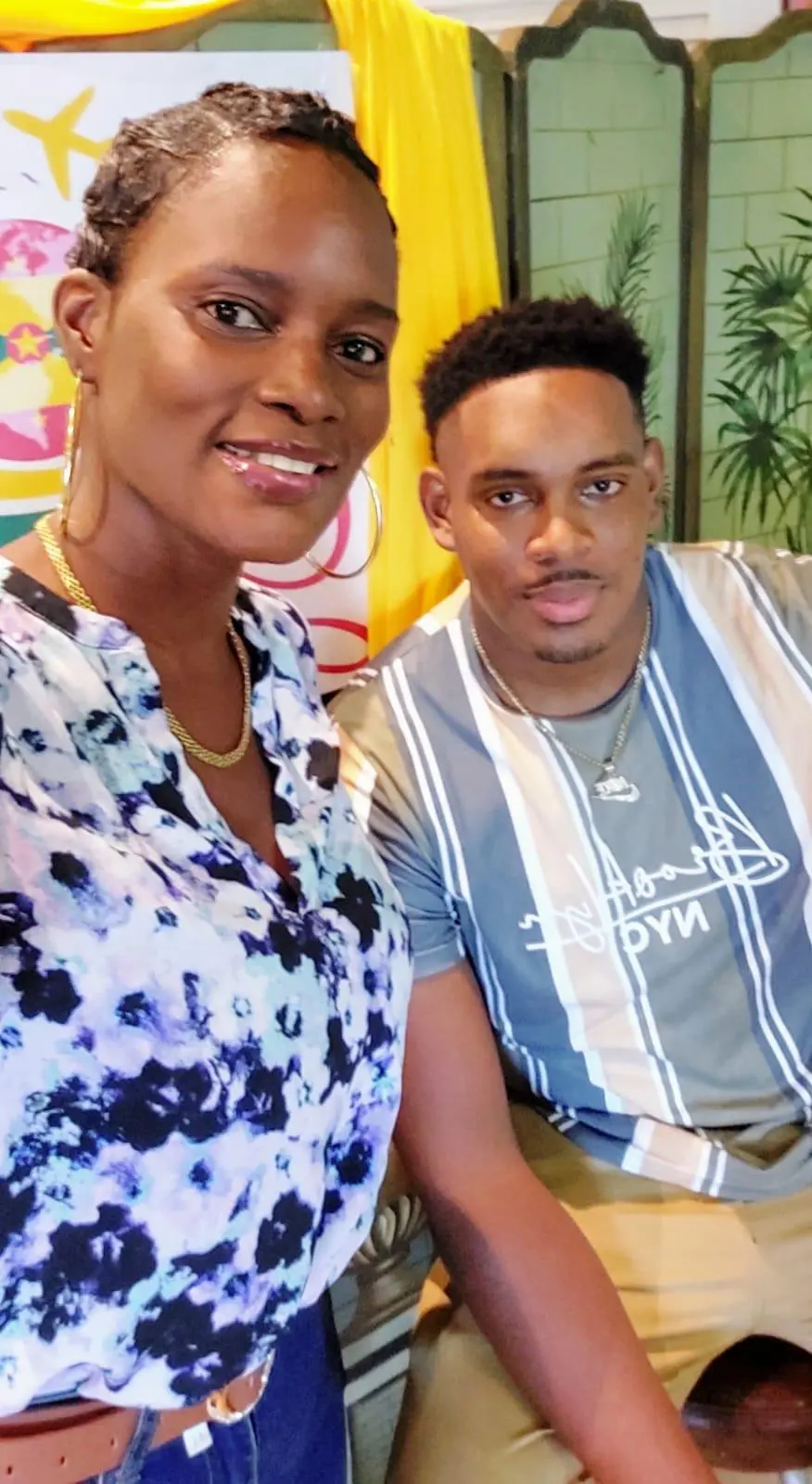

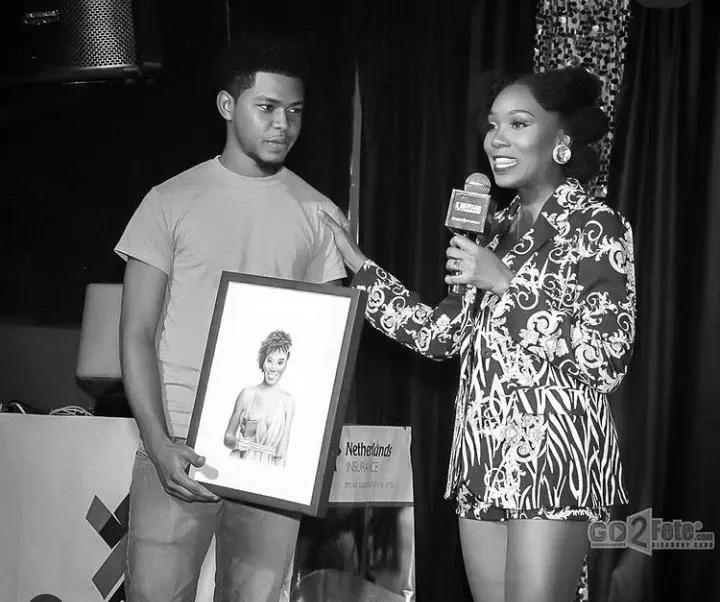
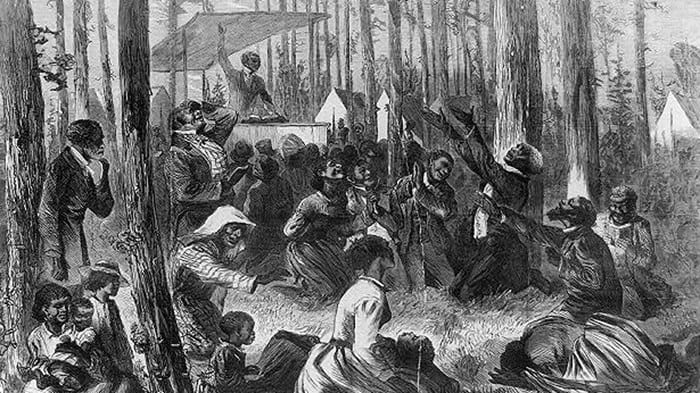
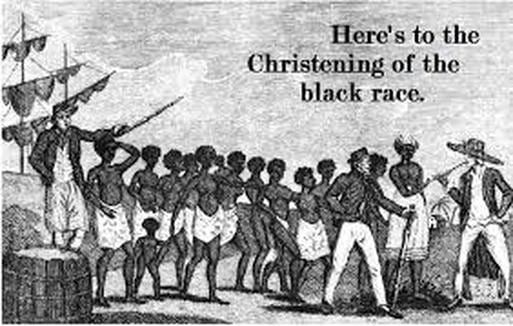
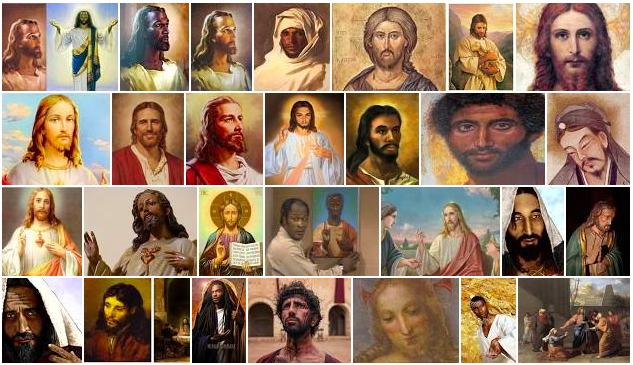
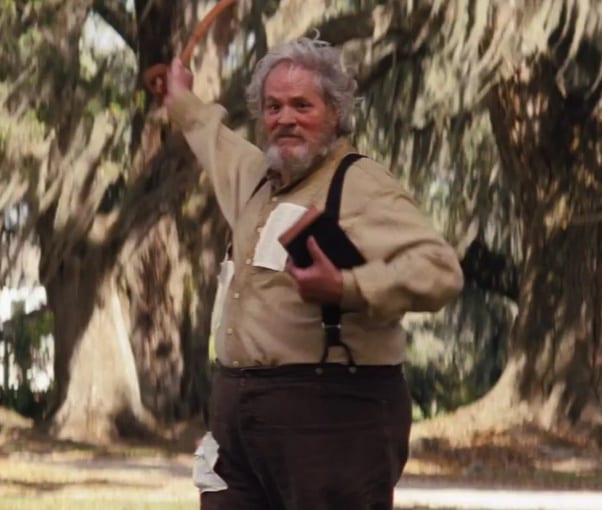
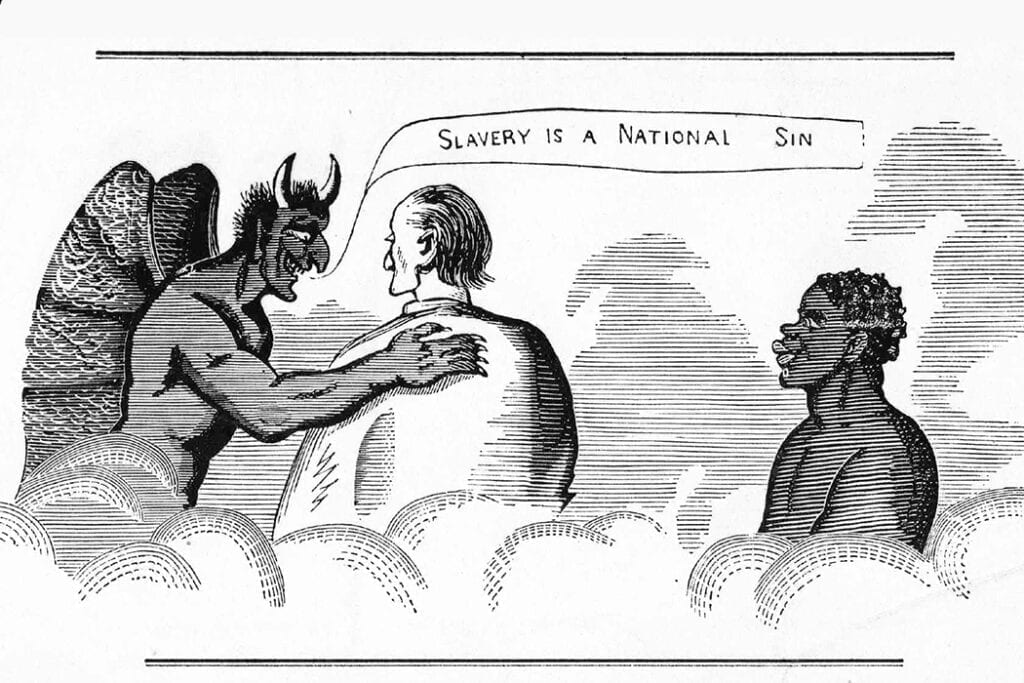
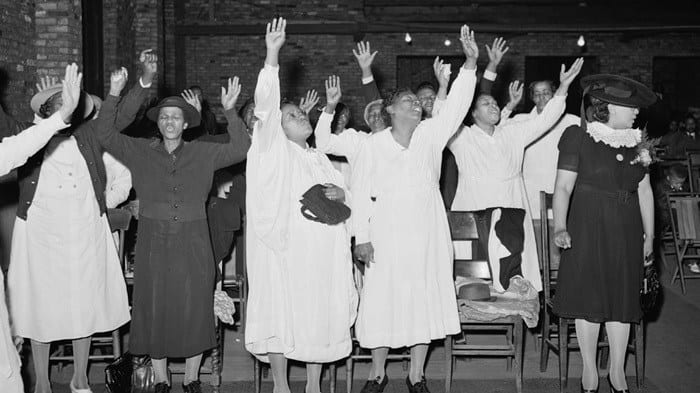
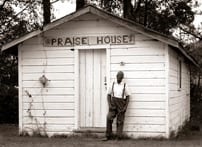
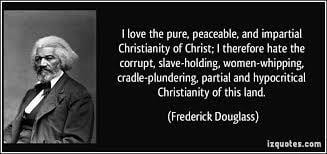
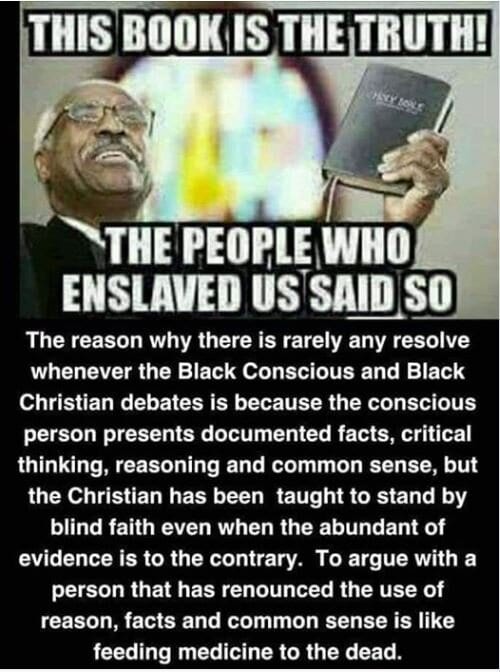
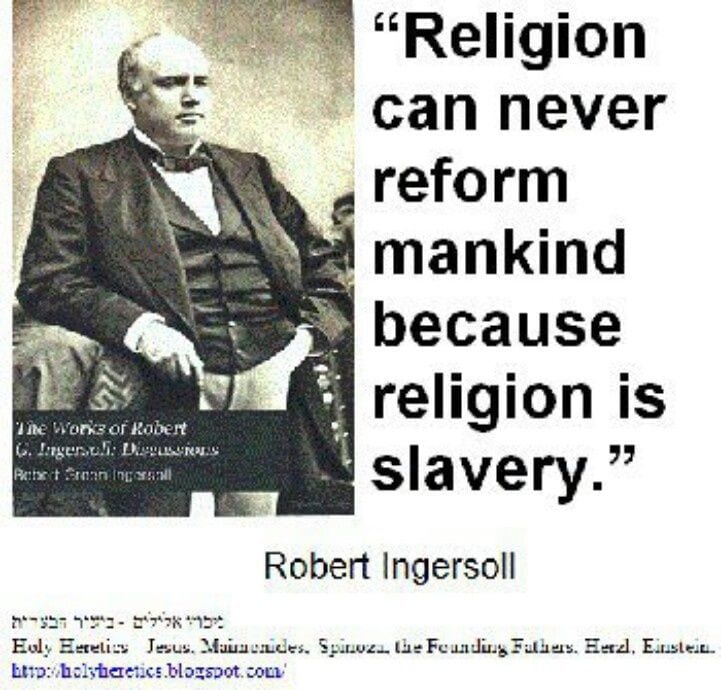
Very very interested I find this article exciting. It calls for further investigation and increase in knowledge.
Thanks Christine, you are too gracious. We appreciate your comments 🙂
Your articles are always knowledgeable and inspiring. Keep them coming.
Hey Cuz, thanks for your continuous support and encouragement.
Wow definitely a great read!
Yes it is and thanks for the compliment
Interesting & informative, especially in explainig the effects on today’s situation as to obedience, submission, etc.
Hi Maria, please take a look at our INSPIRATIONAL segment which is under OUR BLOGS. We have Dr. Myles Munroe whose teaching we believe can inspire you.
Very informative, wishing you concentrated more on the effects of Christianity on Slavery or how the European utilized Christianity to justify slavery. I’m just saying but informative, thanks
Wow, this is a fantastic article. Not as long as the previous but I love reading so it’s no problem for me.
Good information is hard to locate but thanks for sharing.
I love your article on Dr. King. Wishing you and your team good success in promoting our small island and its citizens.
I like your articles. The previous one was good too except for a few flaws but hey, no one is perfect. There are many things I like about this article especially the prayer part. We have a few tenants who wouldn’t pay us rent but all they want to do is to pray. Stop making all that darn noise and give us our rent.
Mabel, some of the most stupidest people I’ve met are religious. Every day they’re in Church but they don’t own anything. Some are also renting from me. They’re stupid and jealous because I worked two jobs for twenty years to buy our homes while they’re in church every day in their Bible study, choir rehearsal, prayer meeting and to make matters worse, I heard one of them mother saying that the wealth of the wicked is laid up for the righteous while I was cleaning my front porch. I want to know who is the wicked because it ain’t me. I use the same principle that is in the article to achieve what I have. These people are so darn brain washed, stupid and jealous. All they chatting about is, “Christ coming” It’s not fitting to call them Christians but Jack Asses.They don’t know the meaning of, “Occupy until I come” Go find another job or do something to create wealth. Forget about that church everyday BS.
I am tired with religious people. Most are so heavenly minded that they’re no earthly good. There’s a few of them I see on FB always posting Religious posts. Everything is about God but I’m begging everyone to be careful of them. They are thieves, fakes and liars.
They would take your money and your belongings and would not pay you back then ignore you. I’m warning all you to run from them Religious people. DONT TRUST THEM.
Praying makes you lazy and too dependent on God. That’s another of their trick.
I know right. Get up and make it happen.
If you have a mango seed in your hands, you don’t pray to God for mangoes. You put the darn seed in the ground. Put some manure if you have some in and around the seed, water it periodically then in a few years, you will get mangoes. You don’t have to pray about it.
I agree that praying makes you lazy, dumb and stupid. There are laws that God created that everyone can benefit from not only Christians. Non Christians are doing much better than so called Christians because they take advantage of God’s laws and principles.
Slavery mentality exists in Religion up to this very day. Our sisters are most vulnerable
Religious people likes too much miracles that’s why they pray so much. They want God to do everything for them without them doing anything. That’s another of their slavery BS
My wife and I were listening to one preach on FB. This man mouth was moving but wasn’t saying anything I told my wife that I couldn’t do it no more so I left.
Religious person needing gas for his car, pulls up in the gas station and begins to prayer.
Our heavenly and most righteous God. We come before you oh mighty father asking you to fill our tank with gas oh Lord. Fill it up to overflowing oh God. Let everyone know that you exist oh lord we pray oh God. Do it now oh Heavenly Father. Gibby daba doba daba liba Sheba daba doba aba yes lord we call it done in Jesus name amen.
During the whole time they’re praying, other people were buying gas and filling up their automobiles so that they can make their money.
I was converted into Christianity. My observation about Religious people is that they disobey God’s commandments then go to God requesting a miracle.
For example, according to the scriptures, we shouldn’t eat certain foods that’s considered as scavengers like pork, shrimps etc. Their physicians told them to stop eating fry foods because it’s affecting their health. They ignore their physicians advice, they prefer to pray for a miracle that to me is fascinating.
Swing low sweet chariots, coming to take us home. We were never christians or muslims, were are his people that were taken into slavey as it was foretold in Deut: 28 vers 68. This will be the generation that will ask the tough questions and uncover the lies..
Interesting Article..
Today, I was listening to Myles Munroe and he was teaching on Principles. He said that you can talk in tongues, pray etc but if you jump from a tall building, you’re going to die because you violate God’s law. I thought that was in line with your article and wanting to share. I now listen to him because of your website. I would advise everyone to listen to him and not those preachers who have nothing to say but make lots of noise.
Interesting… learned some new stuff
Hey are using WordPress for your blog platform? I’m new to the blog world but I’m trying to get started and create my own. Do you require any html coding knowledge to make your own blog? Any help would be really appreciated!
I once attended a church in Brooklyn off Utica and Church Avenues in the late 80’s where the False Prophet and his assistant were from Trinidad and Tobago. These guys raped us continuously. Me and my girlfriend walked in on the pastor in bed with a sister. It was all about MONEY, lies sex and orgies.
When the pastor tired of raping us, he got other fake pastors to do his job. It was all about money, lies, betrayal, SEX and more money.
The Rev always say that God spoke to him but anything that God told him, never materialized. His assistant left his wife Pat from Trinidad and got involved with my girlfriend then they left the church. After a few years, they came back and pastor the same church.
I left church and started hanging out and partying. Those were the good old days in Brooklyn. These fake people used to drive by my hangout spot and point fingers at me but I was not living a lie and I was not a hypocrite and fake as they were.
Man, Religious people, run away from them
… [Trackback]
[…] Here you can find 46323 more Info on that Topic: iamgrenada.com/religion-in-the-colonies/ […]
… [Trackback]
[…] Here you can find 38009 additional Info on that Topic: iamgrenada.com/religion-in-the-colonies/ […]